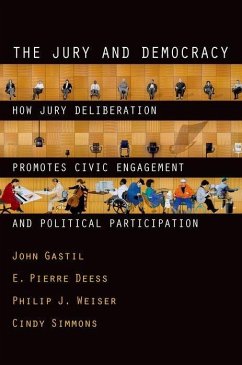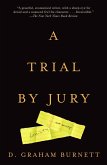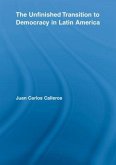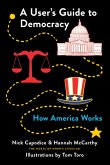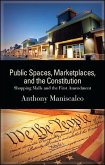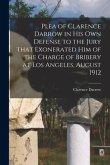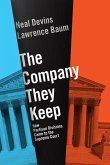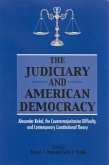Alexis de Tocqueville, John Stuart Mill, and the U.S. Supreme Court have all alleged that jury service promotes democratic civic attitudes and political engagement. The Jury and Democracy is the first book to link jury service and political engagement, demonstrating how this institutionalized form of deliberation can contribute to democratic society not only in the United States but also in the many other countries using or experimenting with juries. The authors look at court and voting records for over thirteen thousand empanelled jurors from across the United States and draw from interviews with thousands more jurors to show that serving on a jury can trigger changes in how citizens view themselves, their peers, and their government. In fact, the study shows that this experience can significantly increase electoral turnout among infrequent voters. Partly as a result of these changing attitudes, jury service also sparks long-term shifts in media use, political action, and community group involvement. The original findings presented in this research advance modern theories of democracy, deliberation, and the law. Whereas Robert Putnam's Bowling Alone brought attention to informal social networks and voluntary associations, The Jury and Democracy demonstrates the importance of institutionalized, state-sponsored deliberative opportunities for citizens to meet and make legally-binding decisions. Legal debates over the proper use of the jury system have failed to account for the hidden civic costs of circumscribing jury service opportunities. The Jury and Democracy suggests how the jury's power might influence newer, deliberative visions of democracy and promote the transition to democracy in more autocratic societies.
Serving on a jury is a powerful experience. The Jury and Democracy is a ground-breaking study that shows how the process of deliberating and reaching a verdict transforms the lives of ordinary citizens. People who serve on juries are more active in civic life and vote more, and the authors examine a number of reasons why this is so. In an era when involved Americans are searching for ways to inspire their fellow citizenry, this book offers a plausible andrealistic path for turning passive spectators into active political participants.
Serving on a jury is a powerful experience. The Jury and Democracy is a ground-breaking study that shows how the process of deliberating and reaching a verdict transforms the lives of ordinary citizens. People who serve on juries are more active in civic life and vote more, and the authors examine a number of reasons why this is so. In an era when involved Americans are searching for ways to inspire their fellow citizenry, this book offers a plausible andrealistic path for turning passive spectators into active political participants.

